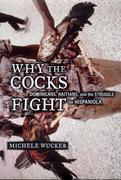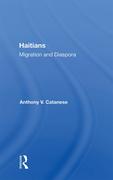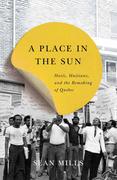18 Results for : haitians
-

Finding Hope in Chaos: Rising from Crisis into the American Dream , Hörbuch, Digital, ungekürzt, 436min
Every so often, a story comes along that is so compelling, so inspiring, and so hard to believe that it must be written down and shared with the world. Steeve Simbert’s journey from abject poverty to living the American Dream is one such story. It will educate you, inspire you, and at times entertain you; but make no mistake, it is also a story of abuse, poverty, deception, and pain. This gripping and personal account of Steeve’s arduous journey from the pits of hell to the glorious heights of success begins in Miami, where he and his twin brother are expelled from their father’s house and returned to Haiti penniless. While struggling to make ends meet and finish high school, his hometown is devastated by one of the most catastrophic earthquakes in human history, killing 250,000 Haitians. Steeve’s fortuitous introduction to the “7 Mindsets” then changes his life forever, setting him on a journey of enlightenment that ultimately enables him to become the first-ever Haitian or Haitian American in history to obtain a Master of Public Policy from the prestigious University of Oxford’s Blavatnik School of Government. This memoir, Finding Hope in Chaos: Rising from Crisis into the American Dream, follows Steeve on his journey, while challenging your humanity and inspiring you to reach for the brightest star in the sky no matter what adversities you might encounter along the way. ungekürzt. Language: English. Narrator: Jim Johnston. Audio sample: https://samples.audible.de/bk/acx0/142148/bk_acx0_142148_sample.mp3. Digital audiobook in aax.- Shop: Audible
- Price: 9.95 EUR excl. shipping
-

The Big Truck That Went By: How the World Came to Save Haiti and Left Behind a Disaster , Hörbuch, Digital, ungekürzt, 773min
On January 12, 2010, the deadliest earthquake in the history of the Western Hemisphere struck the nation least prepared to handle one. Jonathan M. Katz, the only full-time American news correspondent in Haiti, was inside his house when it buckled along with hundreds of thousands of others. In this visceral first-hand account, Katz takes readers inside the terror of that day, the devastation visited on ordinary Haitians, and through the monumental--yet misbegotten--rescue effort that followed. More than half of American adults gave money for Haiti, part of a global response that reached $16.3 billion in pledges. But three years later the effort has foundered. Its most important promises--to rebuild safer cities, alleviate severe poverty, and strengthen Haiti to face future disasters--remain unfulfilled. How did so much generosity amount to so little? What went wrong? The Big Truck That Went By presents a hard hitting investigation into international aid, finding that the way wealthy countries give today makes poor countries seem irredeemably hopeless, while trapping millions in cycles of privation and catastrophe. Katz follows the money to uncover startling truths about how good intentions go wrong, and what can be done to make aid "smarter." Reporting at the side of Bill Clinton, Wyclef Jean, Sean Penn, Haiti's leaders and people, Katz also creates a complex, darkly funny, and unexpected portrait of one of the world's most fascinating countries. The Big Truck That Went By is not only a definitive account of Haiti's earthquake, but of the world we live in today. ungekürzt. Language: English. Narrator: Jonathan Davis, Jonathan M. Katz. Audio sample: https://samples.audible.de/bk/adbl/014907/bk_adbl_014907_sample.mp3. Digital audiobook in aax.- Shop: Audible
- Price: 9.95 EUR excl. shipping
-

Dogfight, A Love Story , Hörbuch, Digital, ungekürzt, 754min
What Jonathan Lethem did for Brooklyn, Matt Burgess does for Queens in this exuberant and brilliant debut novel about a young drug dealer having a very bad weekend. Alfredo Batista has some worries. Okay, a lot of worries. His older brother, Jose—sorry, Tariq—is returning from a stretch in prison after an unsuccessful robbery, a burglary that Alfredo was supposed to be part of. So now everyone thinks Alfredo snitched on his brother, which may have something to do with the fact that Alfredo is now dating Tariq’s ex-girlfriend, Isabel, who is eight months pregnant. Tariq’s violent streak is probably #1 worry on Alfredo’s list. Also, he needs to steal a pit bull. For the homecoming dogfight. Burgess brings to life the rich and vivid milieu of his hometown native Queens in all its glorious variety. Here is the real New York, a place where Pakistanis, Puerto Ricans, Haitians, An glos, African Americans, and West Indians scrap and mingle and love. But the real star here is Burgess’s incredible ear for language—the voices of his characters leap off the page in riotous, spot-on dialogue. The outer boroughs have their own language, where a polite greeting is fraught with menace, and an insult can be the expression of the most tender love. With a story as intricately plotted as a Shakespearean comedy—or revenge tragedy, for that matter—and an electrically col loquial prose style, Dogfight, a Love Story establishes Matt Burgess as an exuberant new voice in contemporary literature. The great Queens novel has arrived. ungekürzt. Language: English. Narrator: Ozzie Rodriguez. Audio sample: https://samples.audible.de/bk/rand/002411/bk_rand_002411_sample.mp3. Digital audiobook in aax.- Shop: Audible
- Price: 9.95 EUR excl. shipping
-

Born in Blackness: Africa, Africans, and the Making of the Modern World, 1471 to the Second World War (eBook, ePUB)
Revealing the central yet intentionally obliterated role of Africa in the creation of modernity, Born in Blackness vitally reframes our understanding of world history. Traditional accounts of the making of the modern world afford a place of primacy to European history. Some credit the fifteenth-century Age of Discovery and the maritime connection it established between West and East; others the accidental unearthing of the "New World.” Still others point to the development of the scientific method, or the spread of Judeo-Christian beliefs; and so on, ad infinitum. The history of Africa, by contrast, has long been relegated to the remote outskirts of our global story. What if, instead, we put Africa and Africans at the very center of our thinking about the origins of modernity? In a sweeping narrative spanning more than six centuries, Howard W. French does just that, for Born in Blackness vitally reframes the story of medieval and emerging Africa, demonstrating how the economic ascendancy of Europe, the anchoring of democracy in the West, and the fulfillment of so-called Enlightenment ideals all grew out of Europe's dehumanizing engagement with the "dark” continent. In fact, French reveals, the first impetus for the Age of Discovery was not—as we are so often told, even today—Europe's yearning for ties with Asia, but rather its centuries-old desire to forge a trade in gold with legendarily rich Black societies sequestered away in the heart of West Africa. Creating a historical narrative that begins with the commencement of commercial relations between Portugal and Africa in the fifteenth century and ends with the onset of World War II, Born in Blackness interweaves precise historical detail with poignant, personal reportage. In so doing, it dramatically retrieves the lives of major African historical figures, from the unimaginably rich medieval emperors who traded with the Near East and beyond, to the Kongo sovereigns who heroically battled seventeenth-century European powers, to the ex-slaves who liberated Haitians from bondage and profoundly altered the course of American history. While French cogently demonstrates the centrality of Africa to the rise of the modern world, Born in Blackness becomes, at the same time, a far more significant narrative, one that reveals a long-concealed history of trivialization and, more often, elision in depictions of African history throughout the last five hundred years. As French shows, the achievements of sovereign African nations and their now-far-flung peoples have time and again been etiolated and deliberately erased from modern history. As the West ascended, their stories—siloed and piecemeal—were swept into secluded corners, thus setting the stage for the hagiographic "rise of the West” theories that have endured to this day. "Capacious and compelling” (Laurent Dubois), Born in Blackness is epic history on the grand scale. In the lofty tradition of bold, revisionist narratives, it reframes the story of gold and tobacco, sugar and cotton—and of the greatest "commodity” of them all, the twelve million people who were brought in chains from Africa to the "New World,” whose reclaimed lives shed a harsh light on our present world.- Shop: buecher
- Price: 16.95 EUR excl. shipping
-

Why the Cocks Fight
Why the Cocks Fight - Dominicans Haitians and the Struggle for Hispaniola: ab 13.49 €- Shop: ebook.de
- Price: 13.49 EUR excl. shipping
-

Haitians
Haitians - Migration And Diaspora: ab 41.99 €- Shop: ebook.de
- Price: 41.99 EUR excl. shipping
-

Place in the Sun
Place in the Sun - Haiti Haitians and the Remaking of Quebec: ab 43.49 €- Shop: ebook.de
- Price: 43.49 EUR excl. shipping
-
Spring Rain
I wrote the song, Spring Rain, in the spring of 2009. I can't remember what inspired it, probably something heard in a sermon, but I visualized the cover of a Spring Rain album. I went to my closet to pick out a white outfit, asked my husband to keep the camera handy, and when the next spring rain came, I went out into our garden, got soaking wet, and he took the picture. Barry was confused. "Why are we making a picture for an album that has no songs?" "If I have the picture, I'll write the songs," I answered. And I did. Actually, a few of them were already written. Take These Hands was the first. I couldn't find music for a documentary based on a book I wrote, called Immokalee's Fields of Hope. "Too bad I can't write music," I thought. Then I talked to another author, Maria Stone. She said, "Once you open that creative side of your brain, you never know what will come tumbling out." And the music came. Take These Hands is a gentle plea for immigration reform, a desire on my part to show people the human side of farm workers. The farm workers of Immokalee inspired that song and the video that was created by Char Rowe McEwen. If you're going to understand this album, you probably need to know something about Immokalee. Immokalee rhymes with "broccoli," and it means, "My Home" in the language of the Seminole Indians here in Southwest Florida. It's an agricultural community with about 25,000 migrant and seasonal farm workers, mostly Mexicans, Haitians and Guatemalans. Somehow the people of Immokalee moved my brain from logical to creative, and beautiful things have happened ever since. I've been singing with the English choir of Our Lady of Guadalupe Church there for twelve or so years, now, and I wouldn't trade it for any church, anywhere. Come to think of it, that's probably where I heard about Spring Rain. Based on Hosea, some of Spring Rain's lyrics came right out of the scripture. (There are so many beautiful words and phrases in the Bible.) Hosea's metaphors in Chapter 6 are all about agriculture, including morning clouds, early dew, and harvests. Remember Me is the story of Michael Reese, the late son of Marcela Rice who is a friend from Immokalee. It's a sad but beautiful story, filled with God's images. Stuart Shelton, who produced the album, co-wrote this with me and added the piano and male harmonies. Raymond was out in Immokalee, too, a homeless guy who was Far From Memphis. He used to hang around the church grounds. Once at choir practice he asked to play my guitar, and boy, were we stunned! He was good - good-good - and later we learned he was even better on the banjo. Pretty much every detail in the story is true. We couldn't save him, but I'm sure God did. And he definitely left his mark on us. Focusing on the next life in my songs keeps me in touch with those who have gone ahead. I saw my father, Carl Thissen, one day when I was on a plane. I looked down at one of those clouds so thick you think you can step out and walk around, and there he was, sitting on a wooden bench that was part of a booth hung with Japanese lanterns, playing his old Silver Bell banjo. When he saw me he smiled that beautiful smile, waved, and then went back to his music on the Clouds Above the Rain. That image stayed with me, and soon another happy song came out, called Dance! I thought the octave jump in Dance! Would be fun for people to sing, and the song makes me want to dance, even though I don't really dance. I can't wait to play that song someday with a full country bluegrass band. Just for a Moment is a gentle song with just my voice and Mike Blasucci's beautiful guitar. It is slow and peaceful because of my friend Sister Judy (whom I knew from Immokalee). I was thinking about "rocking up" the song at the time Judy heard it, but she said no, it's a meditative song. She was right. I placed it right after Dance! So you wouldn't get the impression that I am happily optimistic about my life on a regular basis. There are many moments of doubt and fear, and of little faith. But when I'm reminded by something to focus on God, the feeling is so beautiful that I can't believe I ever forget. That brings me back to Spring Rain: "Remind me to remember just how hard it's been without you." Our Lady of Guadalupe is the story of St. Juan Diego and the Mexican manifestation of the Blessed Virgin Mary. If you've never experienced the "Doce de Deciembre" or "Twelfth of December" in a devout Mexican community, I recommend it highly. On that day in Immokalee, at 3:00 a.m., the church is full, the altar is covered with more flowers than I have ever seen, and the people are singing "mañanitas," or "little morning songs" for Our Lady. At dawn, costumed Aztec dancers fill the parking lot with their music as the people drink hot chocolate and eat pastries. Then they head out to work in the fields. The statue of Our Lady of Guadalupe smiles from her grotto in Immokalee over at the grave of Father Richard Sanders, a priest who served the people there from 1981 to 1985. He died at age 47 of a massive heart attack and subsequent strokes, and the people loved him so much that they buried him there, opposite the grotto. Many think he was a saint, and some say they saw Jesus in him. He was previously a Trappist monk at Mepkin Abbey in S.C. I wrote his biography: Called From Silence: the Father Sanders Novel. It wasn't easy for Father Sanders to leave the peace of the abbey he loved, but he did it because he felt called to help the poor. His internal struggle inspired When You Call, from Jeremiah 29: 12-14: "'For I know well the plans I have in mind for you,' says the Lord....'when you seek me with all your heart, you will find me with you.'" Love One Another is a ballad about Father Sanders in Immokalee. People still pray at his grave, where his headstone reads: "Love One Another, As I Have Loved You." That is my prayer and wish for all of us. The final song is Go Change the World, and it popped out of my head so quickly that I was amazed I really wrote it. It's an inspirational challenge to all of us to go out and do what we can do to help others. You never know how much of an impact you can make, at any age, in any time. May the peace of God be with you always, Carlene.- Shop: odax
- Price: 20.96 EUR excl. shipping
